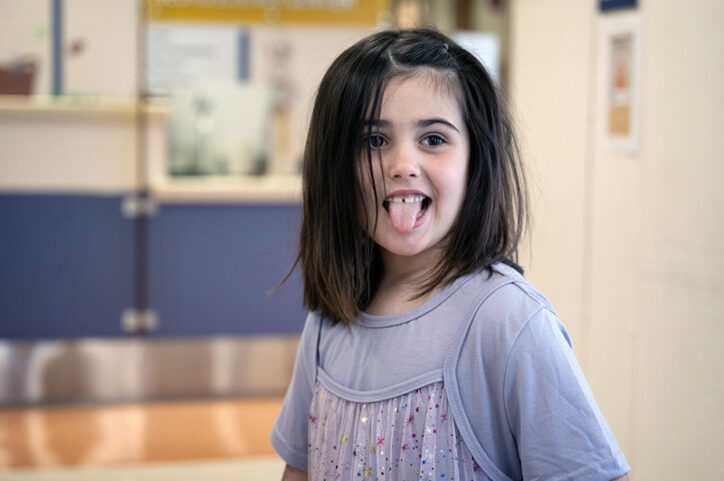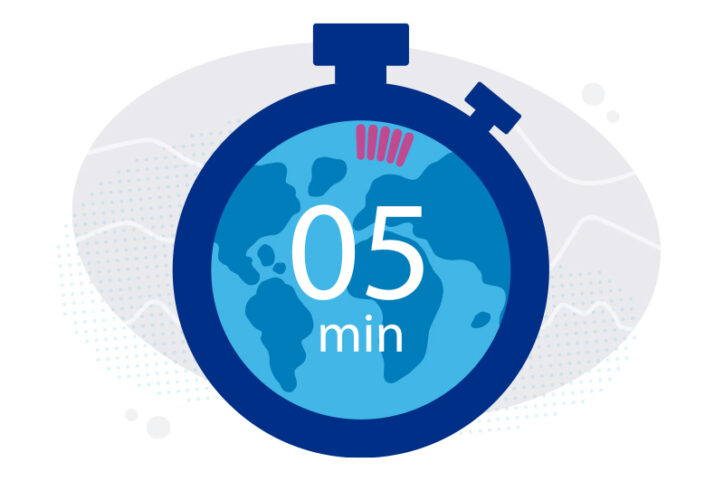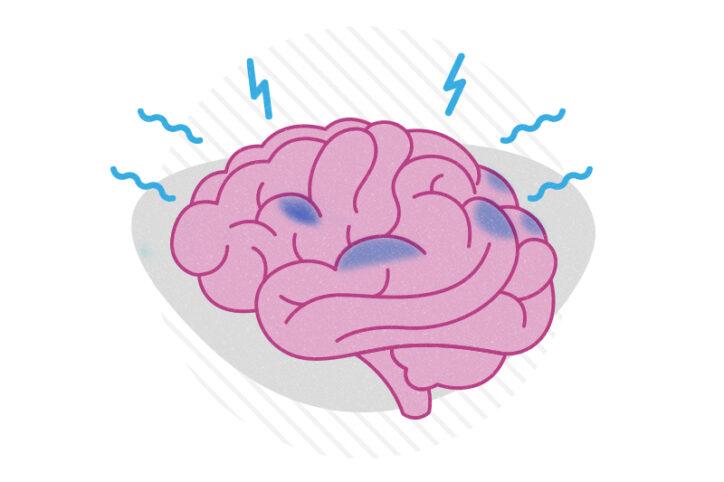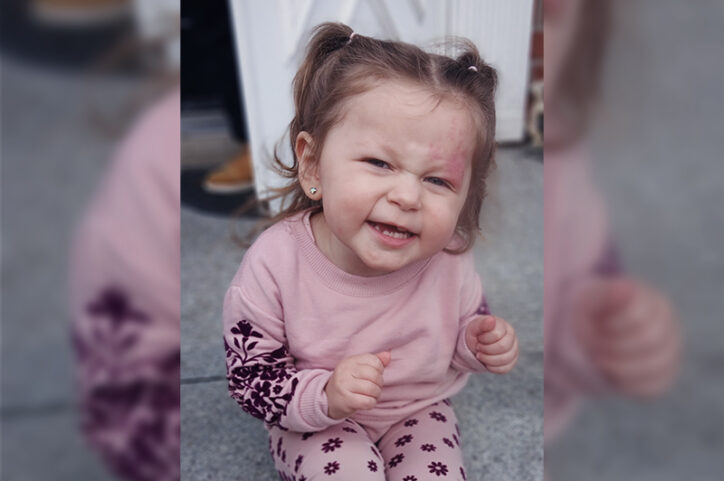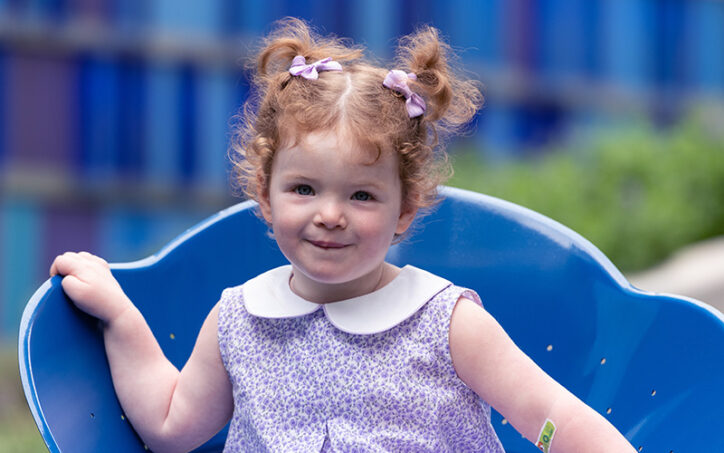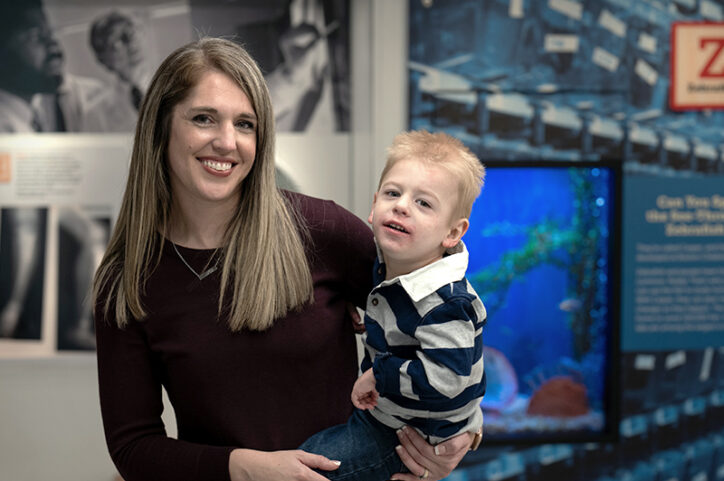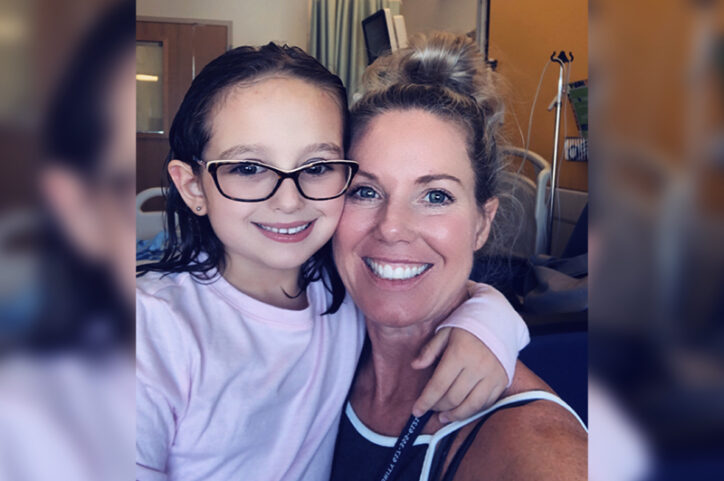Archive for seizures
“Princess June” reigns supreme over Rasmussen syndrome
What do you call a “girly” 5-year-old who adores dolls and frilly nightgowns? If you’re one of June Pelletier’s nurses at Boston Children’s Hospital, the answer is “Princess June,” of course. While Her Highness would much prefer to reign over her parents and three siblings at home in Connecticut, she’s no stranger to the hospital. ... Read More about “Princess June” reigns supreme over Rasmussen syndrome
Tagged: epilepsy, neuroimmunology, neuroinflammation, seizures
Status epilepticus: What’s changed, what to know, and a global perspective
Status epilepticus, or a prolonged seizure lasting more than five minutes, is a rare complication of epilepsy and a medical emergency that can occur even in people without a diagnosis of epilepsy. If not treated quickly, it can cause brain damage, lifelong complications, and even death. “A prolonged seizure is a race against time to ... Read More about Status epilepticus: What’s changed, what to know, and a global perspective
Tagged: emergency medicine, epilepsy, neurology, research, seizures
For Fiadh: Pushing the envelope to treat drug-resistant epilepsy
Fiadh is a bubbly and empathetic 4-year-old. And if you ask her parents, Elaine and Dario, she’s also mischievous and wild. “She knows when she shouldn’t be doing something,” Elaine says. “Then she gives you a look, giggles, and does it anyway.” Fiadh’s tenacity likely comes from her mother, which is a good thing. After ... Read More about For Fiadh: Pushing the envelope to treat drug-resistant epilepsy
Tagged: eeg, epilepsy, neurosurgery, seizures
All in it for Hudson: A family’s shared path with cavernous malformations
Three-year-old Hudson loves trucks and PAW Patrol. He’s a delightful blend of sweet, fun, and feisty, and — after a seizure on New Year’s Day led to an extended stay at Boston Children’s Hospital — he’s an inspiration to his parents, Gabrielle and Matthew. To Matthew specifically, Hudson provides a new look at his own ... Read More about All in it for Hudson: A family’s shared path with cavernous malformations
Can we prevent seizures in Sturge-Weber syndrome?
Port wine stains — capillary malformations on the skin — are the most visible manifestation of Sturge-Weber syndrome. However, up to 60 percent of babies with birthmarks in high-risk locations (forehead and upper eyelid) also have capillary malformations in their brain. Of these, 75 to 90 percent will experience a seizure before the age of 2, ... Read More about Can we prevent seizures in Sturge-Weber syndrome?
Tagged: epilepsy, research, seizures, sturge weber syndrome
Helping Jasmine manage Sturge-Weber syndrome before symptoms start
Sturge-Weber syndrome is a rare neurovascular disorder that increases the risk of seizures in infants due to abnormal blood vessel development in the brain. Almost 90 percent of children with Sturge-Weber experience their first seizure before age 2, which makes proactive, seizure-preventive care important in minimizing the risk of long-term brain injury. Finding such care, ... Read More about Helping Jasmine manage Sturge-Weber syndrome before symptoms start
Tagged: research, seizures, sturge weber syndrome
Writing the book on infantile spasms: Charlotte’s story
When Charlotte, 3, developed infantile spasms last year, her parents, Kate and Brett, entered a world they didn’t know how to navigate. Inspired by their daughter and the care she received at the Epilepsy Center at Boston Children’s Hospital, they set out to help other families facing similar experiences. Nervous parent instincts prove right “I ... Read More about Writing the book on infantile spasms: Charlotte’s story
Tagged: brain health, eeg, epilepsy, seizures
All in the family: One family’s shared link to epilepsy and fight for answers
One of the wonders of parenthood is seeing the traits you pass along to your kids, like your eyes or your laugh. For the Anderson family, however, one shared trait is more complex: a mutation in the NPRL3 gene that leads to epilepsy. It took four generations to uncover the family’s genetic link to the ... Read More about All in the family: One family’s shared link to epilepsy and fight for answers
Tagged: brain health, epilepsy, seizures
Lessons from Emma: Mom shares how RNS has changed their lives
Emma’s journey with the Epilepsy Center at Boston Children’s Hospital began three years ago when she came to Boston Children’s with her parents for help managing her seizures. In Boston, Emma, Lynda, and Danny found answers to their questions, a (temporary) new home, and hope for Emma’s future as she embarked on responsive neurostimulation (RNS) ... Read More about Lessons from Emma: Mom shares how RNS has changed their lives
Tagged: brain health, epilepsy, neuroscience, second opinion, seizures, stroke
How genetic testing helped Wilson help other infants with epilepsy
In August 2021, after months of anticipating their son’s arrival, Emily and Nick felt as ready as they’d ever be to become parents. Happy and excited to finally have Wilson in their arms, they brought him home a few days after delivery. Just over 24 hours later, though, they found themselves back in a hospital ... Read More about How genetic testing helped Wilson help other infants with epilepsy
Tagged: epilepsy, polymicrogyria, seizures


